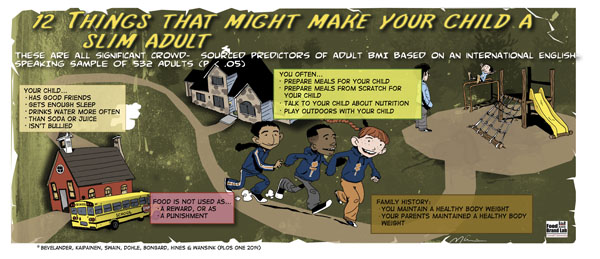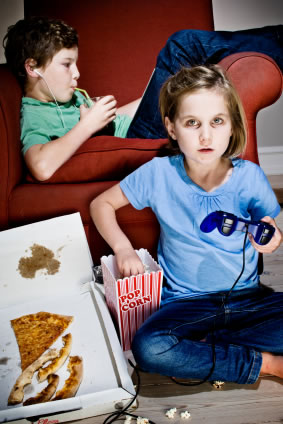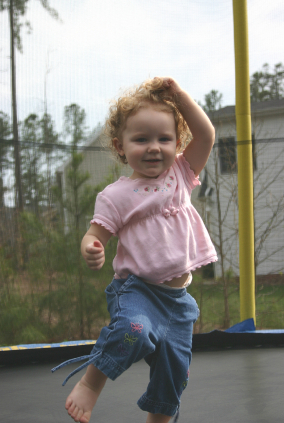Remember that slim kid in school – the one with the cook-from-scratch mom? He’s likely one of the fittest dudes at your high school reunion according to new research from Cornell University, published online in the journal PLOS ONE.
“One of the best safeguards against your children becoming overweight as adults is how involved you are with their lives,” says Cornell’s Brian Wansink, professor in the Charles H. Dyson School of Applied Economics and Management and a leader of the team that used crowdsourcing to ask 532 adults, “Which childhood experiences and behaviors might predict slimness or obesity in adulthood?”
“What’s particularly amazing is how people have identified these childhood predictors of obesity that experts never thought about,” says Kirsten E. Bevelander, another report author, from The Netherlands’ Radboud University Behavioural Science Institute. “Things like bullying, number of friends and how often parents play outdoors with their children are significantly predictive of how much a child will weigh as an adult.”
“Playing with your children, talking about nutrition and simply spending time with them will make it more likely that your child becomes a slim adult,” adds Wansink, director of the Cornell Food and Brand Lab. “The bottom line for parents is: Spend a lot of time with your kids – it almost doesn’t matter what (activity) you do with them – just stay in their young lives.”
The study began by recruiting participants from reddit.com, the user-generated content news site, with notices posted on reddit sections for dieting, weight loss and parenting.
Each participant offered what they believed to be the best predictor of what a child would weigh as an adult – home environment, psychosocial well-being, lifestyle, family history – and submitted the predictor in the form of a question. Besides supplying his or her height, weight and age, participants answered questions generated by other participants about their own childhood behaviors and conditions.
The researchers said their project was among the first to use crowd-sourced information to identify new predictors that may, after further study, be useful in understanding and reducing obesity.
In the paper, the researchers encourage parents to create a “nurturing and healthy home environment and lifestyle for children that includes meals made from scratch, healthy eating conversations, plenty of sleep, outdoor exercise and supporting healthy friendships with peers.”
ᔥ Cornell University



